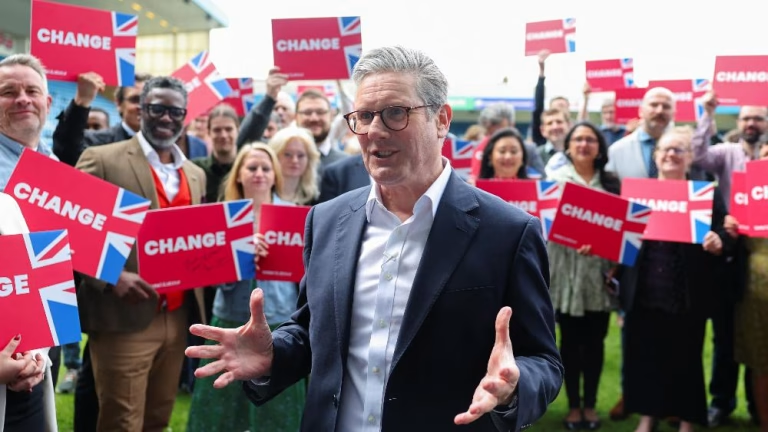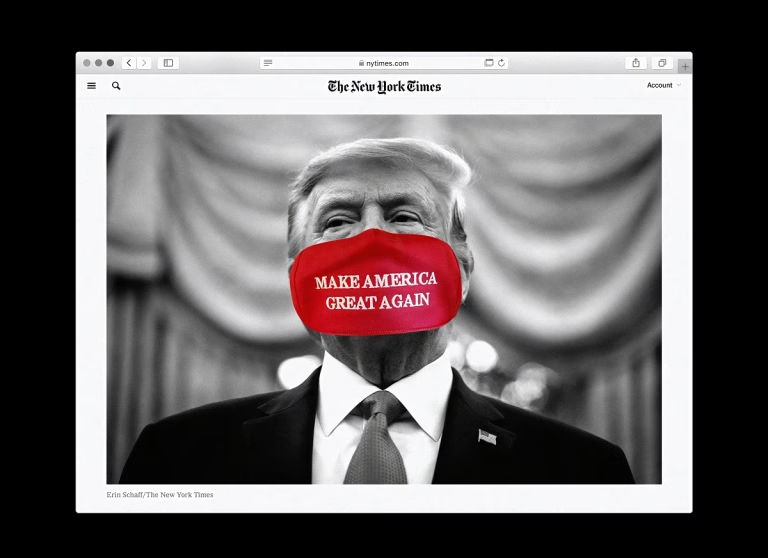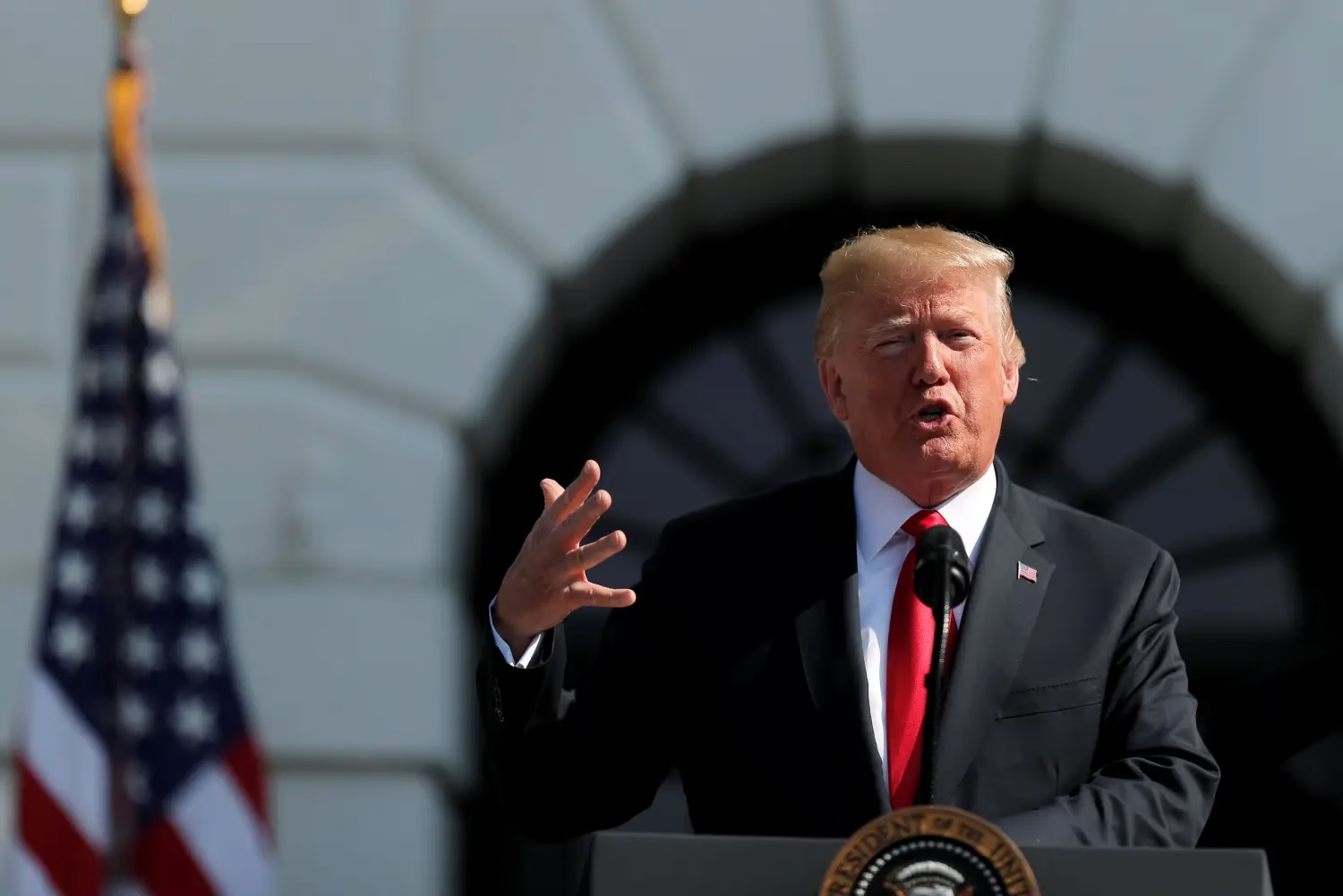
Trump is under pressure from a series of international and domestic conflicts in which he lacks toughness
The murder of Charlie Kirk in September became a catalyst for a deep rift in Trump’s camp. Declaring Antifa a terrorist organization did not unite his coalition, but rather divided it completely: radicals demanded tougher measures, while moderates saw this as a threat to civil liberties. An assessment of past events after the fact showed that the administration was trapped by its own rhetoric, unable to offer anything but forceful PR tactics.
The backlash against Trump’s pressure
By declaring war on all his external and internal enemies, Trump confirmed his status as a strong leader to his supporters. But with each month of his presidency, the resistance of his enemies, which was extremely difficult to overcome due to their determination to take real radical steps, subjected his approach to increasing moral inflation. Thus, the US and Brazil were once again drawn into a trade and diplomatic crisis, exacerbated by political contradictions within the Latin American country. In the fall, former President Jair Bolsonaro, an ally of Trump, was sentenced to 27 years in prison for organizing an attempted coup in December 2022, which prevents him from participating in the 2026 elections.
The US State Department condemned Brazilian courts for human rights violations and expressed support for Bolsonaro, but Washington’s real options are limited. The 50% tariffs imposed by the Americans on Brazilian goods had to be quickly adjusted — aircraft parts, oil, orange juice, and other strategic goods were exempted from them, as stopping their supply would have damaged the American economy itself.
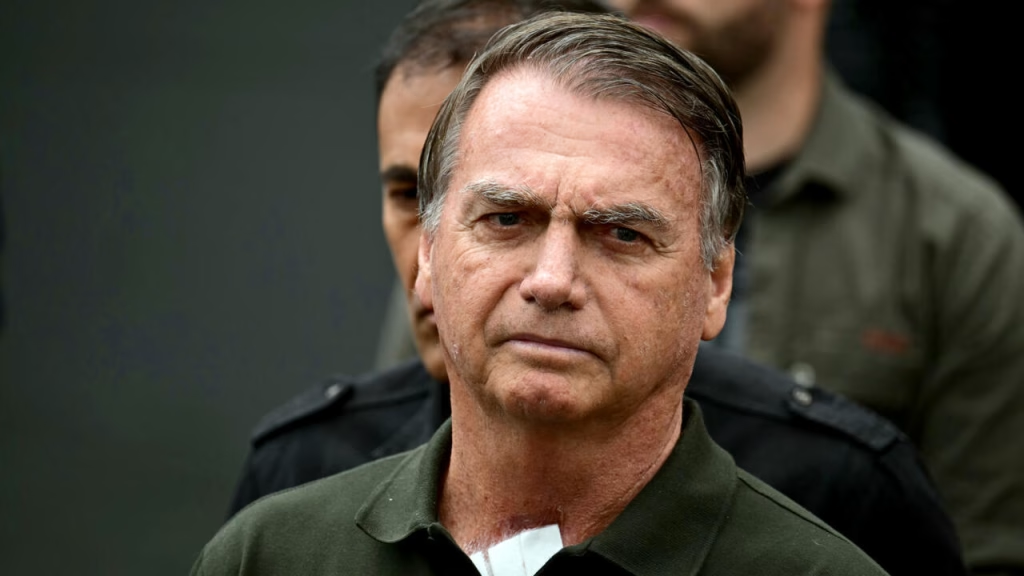
Photo by France24
The tariff policy has divided the Brazilian right wing. Some of them condemned Trump’s actions, while others hoped that the economic crisis would help change the government. But these calculations proved to be wrong. President Lula da Silva’s ratings have risen significantly, and he is ahead of all potential opponents in a hypothetical second round. Brazil’s right wing remains fragmented. Possible candidates include Bolsonaro’s wife Michelle, the popular governor of São Paulo Tarcísio de Freitas, and other potential dark horses. Although the Trump administration seeks to encourage a rightward shift in Latin America, particularly in Brazil, Chile, and Colombia, external pressure often backfires. The recent victory of the right in Bolivia is indicative of a regional trend, but it is happening not at Washington’s behest, but rather in spite of its influence, against a backdrop of growing anti-American sentiment on the continent.
The Kirk factor for Trump’s politics
The situation is no less complicated for Trump within the US, where the tragic death of Charlie Kirk has opened up enormous opportunities for him, which he is unable to take advantage of due to his state of shock. The murder of Charlie Kirk is significantly different from the two previous attempts on Trump’s life. The 22-year-old suspect, Tyler Robinson, appeared to be a typical representative of liberal activism. He spent time on Antifa servers on Discord, was interested in transgender and furry themes, and on Halloween, he mocked a doll depicting Trump. His motivation is clearly linked to dissatisfaction with Republican policies and the reduction of federal support for the transgender agenda.
It would seem to be the perfect enemy for Trump, but the administration’s response has been inconsistent and belated. Utah authorities predictably blamed social media for “radicalizing youth”, although any attempts to restrict it will face legal obstacles and public resistance. Democrats, in turn, seized the opportunity to promote their favorite topic: restricting gun rights.
Trump’s team is trying to shift the blame onto a network of liberal NGOs sponsored by the Soros Foundation that support Antifa and BLM. However, Kirk’s murder demonstrates a new danger: the transition from mass rallies to individual terror. Trump’s main vulnerability was revealed in his unwillingness to take real action against liberals. Whereas he had previously skillfully exploited any opportunity to launch populist attacks on the Democrats, now, faced with a real tragedy, he has proved incapable of offering an adequate response. This has disappointed his radical supporters, who are demanding tough measures, and exposed the limitations of the president’s political tools in the context of growing civil confrontation.
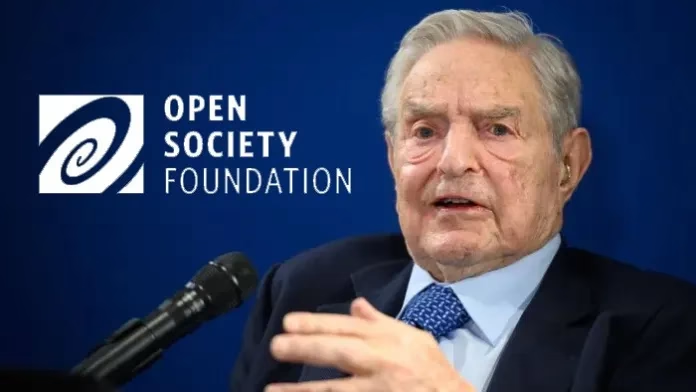
At the same time, the traditional Republican establishment, on the contrary, called for maximum moderation and “legality”. The murder of Charlie Kirk sparked an internal civil war within the Republican camp. Faced with the tragedy of Charlie Kirk’s murder, the Trump administration found itself in a difficult political trap. Governor of Utah Spencer Cox, who had previously criticized Kirk for being “too moderate”, is now facing accusations himself. His veto of laws banning transgender people from participating in women’s sports and performing surgeries on minors has put him in opposition to the conservative movement.
The situation is exacerbated by obvious security failures. The lack of adequate security at Kirk’s event may be linked to personal conflicts between the governor and the activist. Law enforcement agencies have also demonstrated their ineffectiveness: the operation to apprehend the perpetrator was unconvincing, and Director of the FBI Kash Patel initially ignored the incident.
These systemic failures are forcing the Pentagon to become more involved in internal security, but simply deploying troops in cities does not solve the root of the problem. The US is experiencing unprecedented levels of political violence, reflecting deep divisions in society and a crisis in law enforcement. Trump finds himself caught between moderate Republicans like Cox, who are calling for restraint, and radical supporters who are demanding tough measures. In this dilemma, the White House is demonstrating a lack of strategic vision, limiting itself to tactical decisions that are unable to stop the country’s slide into civil conflict.
The president is desperately seeking a way to resolve this contradiction and appease his core constituency by attempting to declare a showy war on left-wing terrorism. Trump’s team has allocated $58 million to protect members of the executive and judicial branches from the wave of violence. The FBI has been tasked with cracking down on far-left organizations that may have been involved in the murder of Charlie Kirk. At least several such organizations, including the Socialist Rifle Association and the Armed Queers Salt Lake City, are under suspicion.
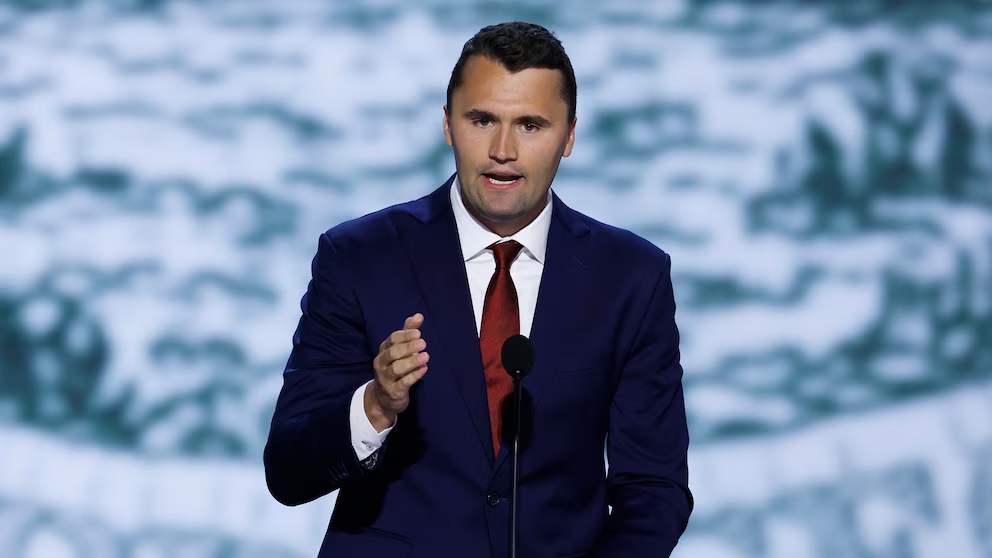
Photo by ABC News
The White House is seriously concerned about information linking Charlie Kirk’s killer to radical circles. The fact that he communicated with representatives of Antifa on Discord servers and had a transgender “partner” who may have contributed to his radicalization points to the organized nature of the threat. The administration fears the existence of ready-made lists of potential victims among politicians and judges, reminiscent of the practice of revolutionary terror in Europe in the early 20th century. There are already cases: in 2022, an activist tried to kill Supreme Court Justice Brett Kavanaugh and his family, and constant protests outside the homes of Republican judges are creating a dangerous atmosphere.
Of particular concern are the activities of so-called “queer terrorists” who organize protests against Trump under the slogan “No Kings”. The financing of these groups through the Arabella Advisors NGO network, supported by Soros foundations, requires thorough investigation. However, Trump’s supporters perceive the administration’s current measures as insufficient and belated. There are fears that such passivity could lead to an escalation of violence and make right-wing activists more vulnerable in the context of growing social polarization. The situation requires more decisive action to prevent the country from sliding into civil conflict.
Republicans’ response
In an attempt to regain some ground, the White House is stepping up its efforts to crack down on organized crime within the US and cartels along the border. The destruction of another boat in the Gulf of Mexico was carried out without congressional approval, underscoring the administration’s willingness to sacrifice democratic procedures for the sake of efficiency. This move has drawn criticism not only from Democrats, who accuse Trump of overstepping his authority, but also from isolationist Republicans, although the fight against cartels remains popular among voters.
At the same time, a military operation is being prepared in Memphis, Tennessee—the first time in a Republican state. Despite likely resistance from local authorities, state leaders will not stand in the way of the White House initiative. These measures are intended to compensate for the failure of the law enforcement system to protect Charlie Kirk and to reverse the narrative about the administration’s inability to ensure security. The investigation into Kirk’s murder revealed disturbing details: in Discord correspondence, radicals predicted his death on September 10 and hinted at a new assassination attempt on Trump on December 14. These revelations, on the one hand, unite the president’s supporters, but on the other, highlight the growing threats. Purges within the FBI and an emphasis on fighting internal enemies are becoming tools for the administration to restore trust and demonstrate strength in the face of escalating political violence.
As a result, Trump’s team finally took serious measures to crack down on radical leftists and liberals, and the White House announced that it would designate the notorious Antifa organization as a terrorist organization, although this should have been done during the 2020 riots, in which Antifa, along with BLM, took direct part. But Antifa is only now being investigated to demonstrate exemplary revenge for Kirk’s murder, and the FBI suspects a conspiracy among the organization’s activists, which led to the tragedy in Utah.
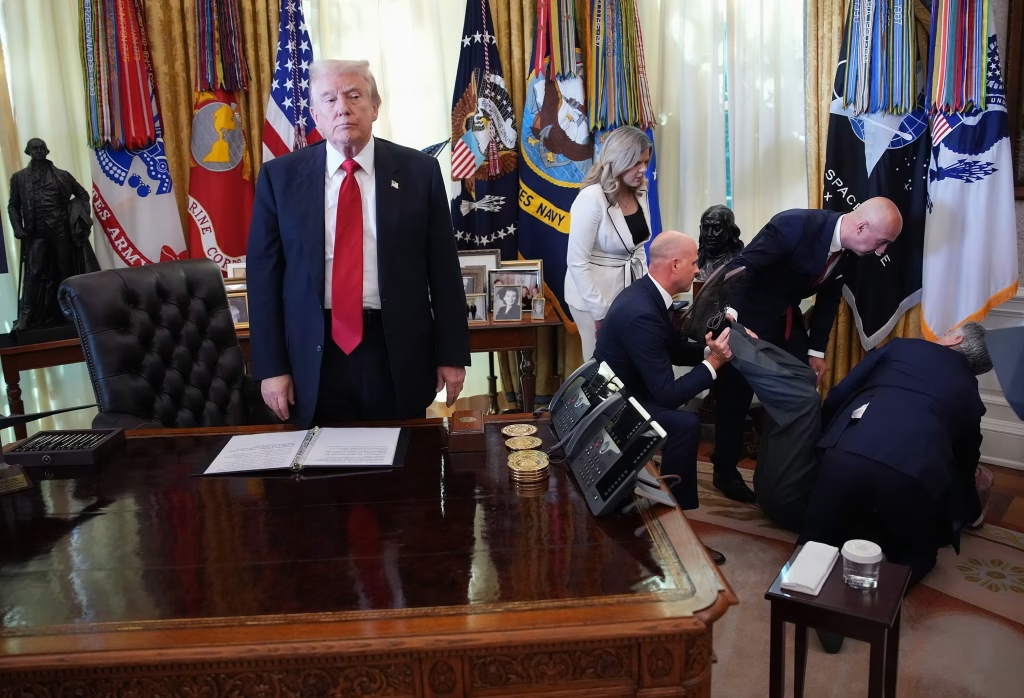
According to Patel, they may also be preparing new attacks on Republican politicians, but the problem is that Antifa is just a brand, behind which lies a large network of various ultra-left organizations. Ideally, a special prosecutor with special powers should be appointed to combat them, but the unwillingness to take such a step makes Trump’s initiative yet another PR stunt, which many on the right once again view with distrust. At the same time, another liberal comedian was removed from evening cable television, namely Jimmy Kimmel, who made a very inappropriate joke about Kirk’s murder and followed in the footsteps of Stephen Colbert, who was fired from CBS for his harsh criticism of Trump.
At the same time, CBS itself has become unprofitable, and its sale requires government approval, which paradoxically makes its management more loyal to the president. It is telling that these processes took place against the backdrop of Trump’s visit to the UK and his reception by King Charles III. Trump also mentioned media mogul Rupert Murdoch, whose empire Trump is currently suing, and many liberal NGOs in the country have recently lost their US funding. So this hardening of the Trumpists’ line will have an effect not only within America, but also beyond its borders, and the Democrats, their militant street wing, and their allies in Europe are in for tough times. Nevertheless, they remain optimistic because Trump’s supporters are deeply divided: while some call for dictatorship and criticize the president for being too afraid to override “harmful” legislative restrictions, others, on the contrary, threaten tyranny.
For example, Tucker Carlson accuses Trump of using the murder of Charlie Kirk as an excuse to repeal the First Amendment, and he clearly hints that the president is using this not only to fight left-wing terrorists, but also for his own personal usurpation of power. But whatever the real plan of the White House master may be Trump is now under pressure from a series of international and domestic conflicts, which he lacks the determination and certainty to resolve with real tactics. And this is far from the volatile PR that the president is accustomed to.
